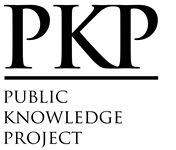Ensuring Active Participation in School Projects: A Reflection Case Study in the Framework of Education for the Sustainable Development
Abstract
Environmental Education with joint efforts by the government, environmental agencies, entrepreneurial initiatives, local authorities and schools play a major role in in promoting students’ understanding of environmental concepts, enhancing their awareness on major environmental issues and positive attitude towards natural environment, and cultivating the future active, environmental literate citizen. This research is a case study with synthesis of many interesting approaches, actions and constructive elements of a school project on Environmental Education which designed and applied to meet the principles and methodology of Education for the Sustainable Development. The research method allowed the reflection and assessment of the design, the detailed description of the educational activities, the objectives initially set, the way they were achieved and their impact to those involved, particularly to students and teachers. The study aimed to contribute in the understanding of the framework, procedures, characteristics of the target group and the learning environments, in an open “reading” frame. It also aimed to attribute meaning to the real experience of the participants.
Students’ participation in the educational project was very active because of the interesting subject of the project, the link of the study with the management of ecosystems and also the relations that were built up among the participants during the project implementation. The Project utilized the didactic research with the use of various educational techniques which stirred the interest of students and pushed them to get more involved in the educational process, looking more to discover new knowledge. The project focused on learning about the bio-communities and the ways of management and protection to ensure future ecological sustainability and social quality of life. Students visited agro-tourism units in Macedonia and Crete in different ecological environments. Discussions, interviews, round table debates, brainstorming, role play, environmental pathways, guided tours were greatly conducted together with the ICTs in various learning environments inside and outside the school, in the classroom, the libraries, the science laboratory, in the field and in society, kept the students highly interested all over the project implementation.
Full Text:
PDFDOI: https://doi.org/10.5296/jsss.v4i2.10938
Refbacks
- There are currently no refbacks.
Copyright (c) 2017 Maria Kalathaki

This work is licensed under a Creative Commons Attribution 4.0 International License.
Journal of Social Science Studies ISSN 2329-9150
Copyright © Macrothink Institute
To make sure that you can receive messages from us, please add the 'macrothink.org' domain to your e-mail 'safe list'. If you do not receive e-mail in your 'inbox', check your 'bulk mail' or 'junk mail' folders. If you have any questions, please contact: jsss@macrothink.org
-----------------------------------------------------------------------------
